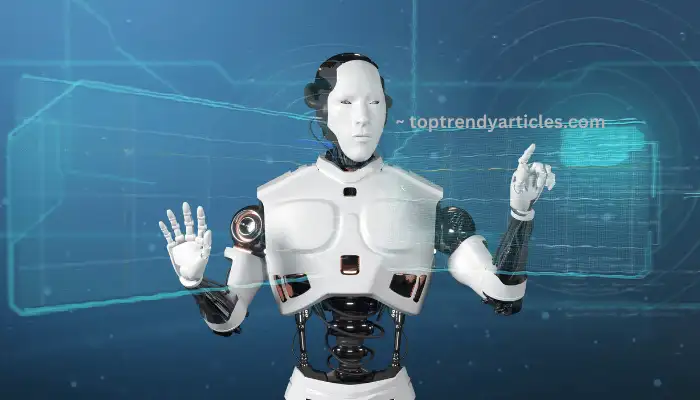A Clear and Present Challenge: Getting Gen-Next Ready for Generative Artificial Intelligence
By now, you must have heard the term ‘AI literacy’ more times than one. And that is an indicator of how serious a challenge this could soon be. A Clear and Present Challenge: Getting Gen-Next Ready for Artificial Intelligence Social Contract… Velocity #3. Back in my childhood days, around 2005 or so, I became aware. But doing it right is not just about coding, theoretical knowledge, or getting to know how the neural networks work. Beyond understanding how to actually build these models, AI literacy includes social implications and opportunities and the personal wisdom required in wielding this powerful lever. It is about stepping up our kids to ride on the back of AI and profoundly utilize it; rather than them being merely passengers upon a foreseeable tsunami. But we have to separate the chaff from the wheat as well: What can AI not only do but safely should (vs. what it technically could, if you like).
The Evolution of Skills:

We are on the brink of a time when that which we have identified with as distinctly human will be eclipsed by our creations. Let us look at the growth of Skills in Mathematics. There was a time when the fastest human calculators were considered essential. But today, you have to know what calculations need to be done more than the speed of it — a shift in priority brought about by machines doing the maths for us. Language skills land to a similar transition not so long down the line as we think. In the future, better language skills at this rate will no longer be an indicator for topic expertise. Instead of word count, we rely on clear and cogent thought here – whether or not it takes a lot of words. The new three R’s will become core skills — the heart of our kids’ intellectual toolbox.
In reading, excellence in fluency is not the same as mastery of a skill. In the AI era, language will not only be an expression but also a control and understanding tool. Therefore, effective thinking and communication need to have been basic capabilities for human beings. The future of an AI-driven world will demand that we be able to speak with AIs, have a discourse with them, and actually question and learn from the conversation (challenge) it. So, our education should teach children to think critically and carefully; be curious with doubt (skepticism) but able in logic to develop without this human trait while living or working and creating together.
The Art of Asking the Right Questions:
We need our children to be more than AI cyborgs, passively consuming balance sheets and goods; they should be its architects. Rote learning is out, and critical thinking and ethical AI will become major aspects of education. This is not an upgrade from what our education system puts in place but a mandatory 21st-century transformation like having to replace parchment with digital screens. Not least the very nature of what sorts of skills-oriented people or professionals need to thrive in a knowledge economy increasingly influenced by AI will clearly evolve quickly. But of course, remember: Adaptability is the quintessence of intelligence — it is not only about knowing and wisdom but being able to modify. Therefore, we need to arm up our future generations with Field Guide for Resilience & Agility and the knowing of inquiry, curiosity & leadership. We should not just be AI tenants, but its architects and stewards that help guide it to solve some of the greatest challenges facing humanity.
User Story: As the Information Age Looms:
You see, as we fast-forward into an imaginary future generation of generative AI-enabled robots all around us… we realize that our current world may not have been built to transition smoothly from its Silicon Valley archaeology age. Information is the new currency and learning how to commoditize it strategically has never been needed this much before during our existence. In this information age, we need citizens prepared to navigate within an exploding digital universe. A tsunami of data will crash upon our children, a never-ending torrent of hyper-personalized digital content that they won’t so much consume as interact with. What they need to do is; filter, analyze, understand and combine this information, turning it from data into usable knowledge.
Evolving Fundamental Skills:
Accordingly, the ‘reading, writing, and arithmetic’ of yesteryears need to transform into that of research, reasoning & reflection for today. What has to be the rock-bottom guarantee in this new education is your capacity for asking penetrating questions, finding reliable answers, and knowing what truth means and where its estranged brother falsehood hides, all while thinking critically and creatively. As we further adopt AI into each corner of our existence, it shall be closer at hand for the dark side to prevail. Among these, one of the not-so-easy battles on which our children will have to stand is distortion and deepfakes or AI-driven misinterpretation. Thus, we must equip them with the skill to tease out truth from falsehood, debunk digital magic tricks and chase after their version of right in a seemingly never-ending series of bias-infested vistas that present themselves.
Critical Media Literacy:
Thus, this critical media literacy will be a must-have skill. No, we should teach our children – not just inform them of what the media is telling us but why it is and who’s sending that message in which way. We need to develop in them a healthy skepticism for everything they learn – we teach our children that learning happens everywhere and all the time; unfortunately, so does propaganda: Children must explore, interrogate what is placed before their eyes or ears, and only accept as truth data when it has been tested with diverse situation models.
The Real World Must Not Be a Victim of the Digital Age:
The physical world also should not suffer due to digitalization. As the digital world provides many options, it is important to have tangible manifestations of real life. As the digital and physical worlds mingle, we have to instill in our youth that human values still count: Empathy, compassion, cooperation (linked), and social responsibility are ever compelling. It is crucial that we implant in them a global conscience beyond the digital realm and encourage the use of their talents to help solve important human issues. We must not only train their minds, but we also need to inspire them. For training the mind does it tell as far as envisioning what has never been will be learned from here or nowhere schools.
Getting Ready For The Long Road:
Unfortunately, changing our education system is a marathon, not just only a sprint. With the myriad of stakeholders, many convoluted decision chains, and delays were inevitable. But we can not wait. Help Your Physician; Teach the Kids AI-produced Liberties Starts at Home. This means as parent(s), guardian(s), caregiver, or mentor, our first point of duty is to understand AI! By talking together, discussing with each other and exploring hand in hand; we were able to create a framework for the understanding of AI that our children might have. Enter these into the daily dialogues, where we provoke their curiosity and challenge them to think before acting or forming an opinion. In the crunch, change will happen inside out reimagined from: Medium What does it mean to be a seasoned technology… If we do not fight the reins today, our pureblooded might become part of the vortex tomorrow. We instead are their lighthouses, guiding their path with wisdom. Our own homes should be the first classrooms they know how to sail through change of tides, ask in need, think, and level up.
